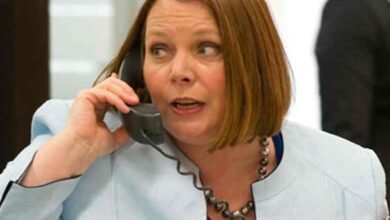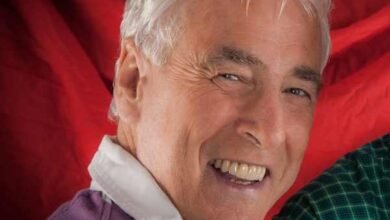Calum Leslie: The Voice of Modern British Broadcasting

Calum Leslie has emerged as one of the most recognisable and trusted voices in contemporary British broadcasting. Best known for reading the news on BBC Radio 1’s Greg James Breakfast Show and for his pivotal work with BBC Newsbeat, Leslie embodies the new generation of journalists who combine traditional reporting discipline with an instinctive grasp of how audiences consume information in a fast-moving digital age. His journey from student journalist in Scotland to a national broadcaster is a compelling story of talent, dedication and the power of well-honed skills.
Table of Contents
ToggleEarly Life and Education
Raised in the Scottish town of Livingston and born in nearby Glasgow, Calum Leslie developed an interest in media and current affairs at a young age. While many children were content with the occasional school newspaper article, he nurtured a genuine fascination with how stories are discovered, shaped and delivered. That curiosity naturally guided him towards formal training in journalism.
Leslie chose to study at Glasgow Caledonian University, where he completed an MA in Multimedia Journalism in 2013. This programme gave him a thorough grounding in reporting across multiple formats, from traditional print to the rapidly evolving online and broadcast sectors. Crucially, he pursued and achieved the prestigious National Council for the Training of Journalists (NCTJ) Diploma in Journalism, a qualification long considered the benchmark for professional standards in the UK. His mastery of core disciplines such as media law, public affairs and shorthand became the technical backbone of his career.
Breaking into Journalism
Graduating with strong academic credentials was only the first step. Leslie quickly demonstrated that he was more than a student of journalism; he was a natural practitioner. Early opportunities at BBC Scotland gave him the chance to learn the rhythms of a busy newsroom and to develop the clarity and authority required for live broadcasting. His work with the BBC Radio 4 Today programme further sharpened his ability to handle complex national and international stories, ensuring that he could communicate them succinctly to a wide audience.
From the outset, colleagues recognised Leslie’s blend of calm professionalism and infectious enthusiasm. He combined the discipline of a traditional news reporter with the easy confidence of a presenter comfortable in front of a microphone or camera. These early roles laid the foundation for a career that would soon move onto the national stage.
Rise at BBC Newsbeat
BBC Newsbeat, the flagship news service for younger audiences on Radio 1 and 1Xtra, proved to be the perfect platform for Leslie’s talents. As a reporter and presenter, he covers everything from breaking political developments to cultural and entertainment stories, tailoring complex issues for a diverse and youthful audience. Reading the news on the Greg James Breakfast Show, he has become a familiar and trusted voice for millions of listeners starting their day.
Newsbeat demands more than simply reading scripts; it requires a journalist who can interpret fast-moving events and communicate them in clear, accessible language. Leslie’s training and early newsroom experience prepared him for exactly that challenge. Whether reporting on a sudden political crisis or explaining the implications of a major sporting event, he delivers information with precision and warmth.
Television and Special Programming
Although radio remains his primary domain, Calum Leslie has successfully expanded into television and multimedia projects. He has co-presented programmes such as Life Hacks and the Official Chart First Look on Radio 1, and has worked on BBC Radio 5 Live’s Sunday Breakfast alongside Eleanor Oldroyd. His television appearances include panel shows like Seven Days on BBC Scotland and contributions to Newsnight, where his sharp insights and clear delivery have made a strong impression.
Leslie has also fronted several documentary and special projects that highlight his versatility. He hosted the programme Voting For The First Time, a guide for new voters in a general election year, and contributed to the BBC’s coverage of the United States presidential race with US Election 24: Time To Decide. In another acclaimed project, What Happens When You Become US President, he helped explain the complex processes and implications of American politics for a British audience. His documentary Gay Marriage And Me explored the social and legal journey of equal marriage in the UK, demonstrating his willingness to engage with sensitive and significant cultural topics.
Looking forward, Leslie is the face of Cracking The Case, a three-part true-crime series for BBC iPlayer. This ambitious production delves into the psychology of crime and the intricate workings of police investigations, once again showing his capacity to move between hard news and more narrative-driven storytelling.
Professional Approach and Style
What sets Calum Leslie apart is the blend of professionalism and relatability that defines his broadcasting style. He brings clarity and authority to every bulletin, yet his tone remains warm and conversational. This balance allows him to connect with a broad spectrum of listeners, from teenagers tuning in before school to adults seeking concise updates on current affairs.
Leslie’s work reflects a deep respect for the core principles of journalism: accuracy, impartiality and public service. He credits his NCTJ training for instilling these values and often speaks about the importance of understanding media law and ethical responsibility. His career is a reminder that in an era of social media noise and instant reactions, the disciplined skills of a well-trained journalist remain indispensable.
Influence on Modern Broadcasting
In the rapidly changing world of media, where podcasts, streaming platforms and social networks compete for attention, Calum Leslie stands as an example of how traditional journalism can adapt and thrive. He has embraced new formats while maintaining the credibility and standards expected of the BBC. Younger audiences, who may consume news in fragments through their phones, find in Leslie a guide who respects their intelligence and meets them on their own terms.
His presence also highlights the growing importance of multi-platform journalists. A modern broadcaster must be equally at ease on radio, television and digital platforms. Leslie’s ability to shift from live radio bulletins to in-depth television documentaries shows how a single journalist can bridge these mediums without sacrificing depth or quality.
Personal Interests and Life Beyond the Studio
Away from the microphone and camera, Calum Leslie enjoys a life grounded in personal passions. He is an enthusiastic golfer, following major tournaments closely and enjoying the challenge of the sport whenever his schedule allows. He is also a keen reader, often juggling multiple books at once, which reflects a curious and thoughtful mind well suited to the demands of journalism. These interests give him a rounded perspective and help sustain the creativity required for his demanding career.
Though he maintains a professional presence on social media, Leslie keeps his personal life relatively private. His public posts focus on his work, offering listeners and viewers behind-the-scenes glimpses of major broadcasts and special projects. This careful balance between engagement and discretion mirrors the professionalism that characterises his on-air persona.
Recognition and Future Prospects
Calum Leslie’s work has earned respect across the broadcasting industry. From his early recognition as an outstanding journalism student to his current status as a prominent BBC voice, he exemplifies the qualities that young journalists aspire to emulate. His path from local Scottish newsrooms to national programmes illustrates the opportunities that rigorous training and persistent effort can create.
Looking ahead, there is every indication that his influence will continue to grow. Whether covering breaking political developments, presenting high-profile documentaries or shaping the next generation of BBC Newsbeat coverage, Leslie is poised to remain a central figure in British media. His adaptability, commitment to quality and natural rapport with audiences suggest that his career is only just entering its most exciting phase.
Conclusion
Calum Leslie represents the best of modern British broadcasting: a journalist who respects tradition yet embraces innovation, a presenter who combines authority with approachability, and a professional whose career path inspires future generations. From his early days in Scotland to his prominent role at BBC Radio 1 and across BBC platforms, he has shown that rigorous training, curiosity and a passion for storytelling can lead to a career that not only informs but also engages and inspires. In a media landscape that continues to evolve at breathtaking speed, Calum Leslie’s voice remains a clear, confident and trustworthy guide for audiences across the United Kingdom.



